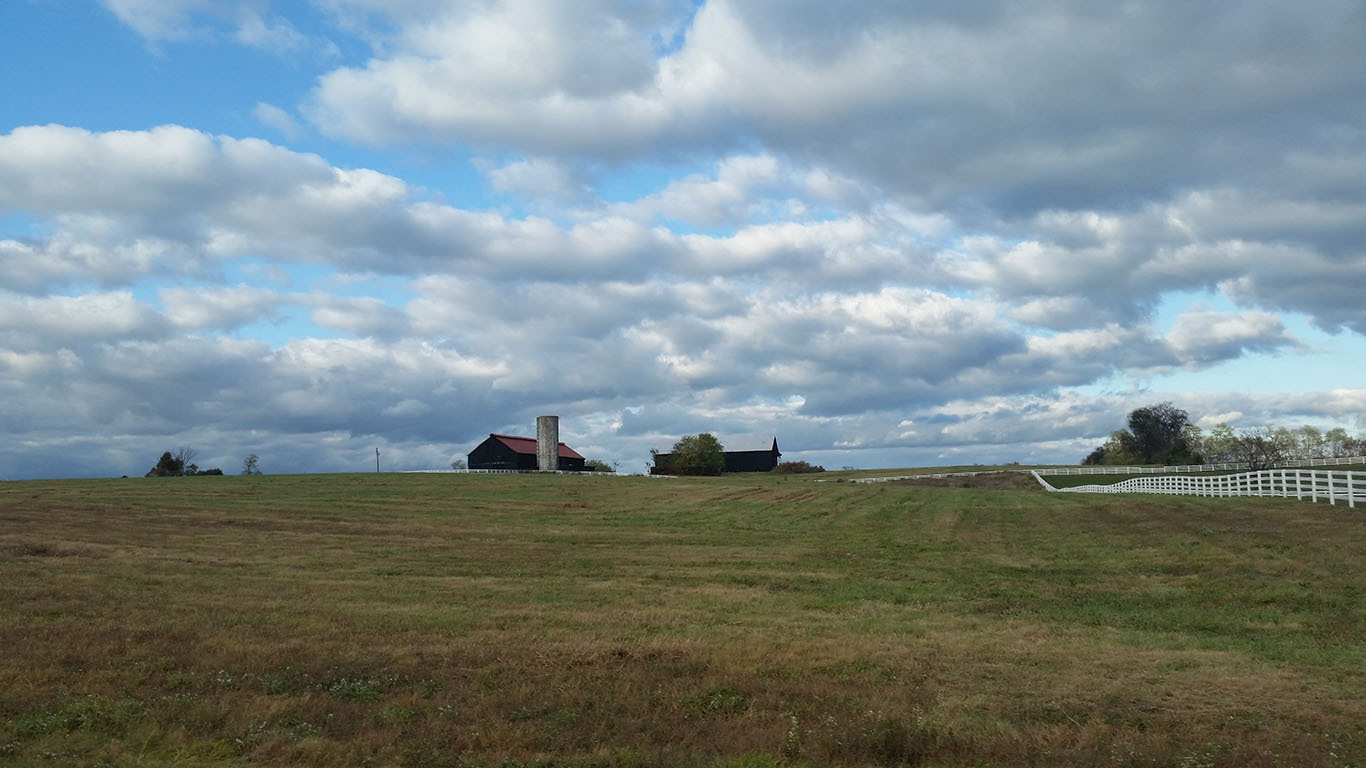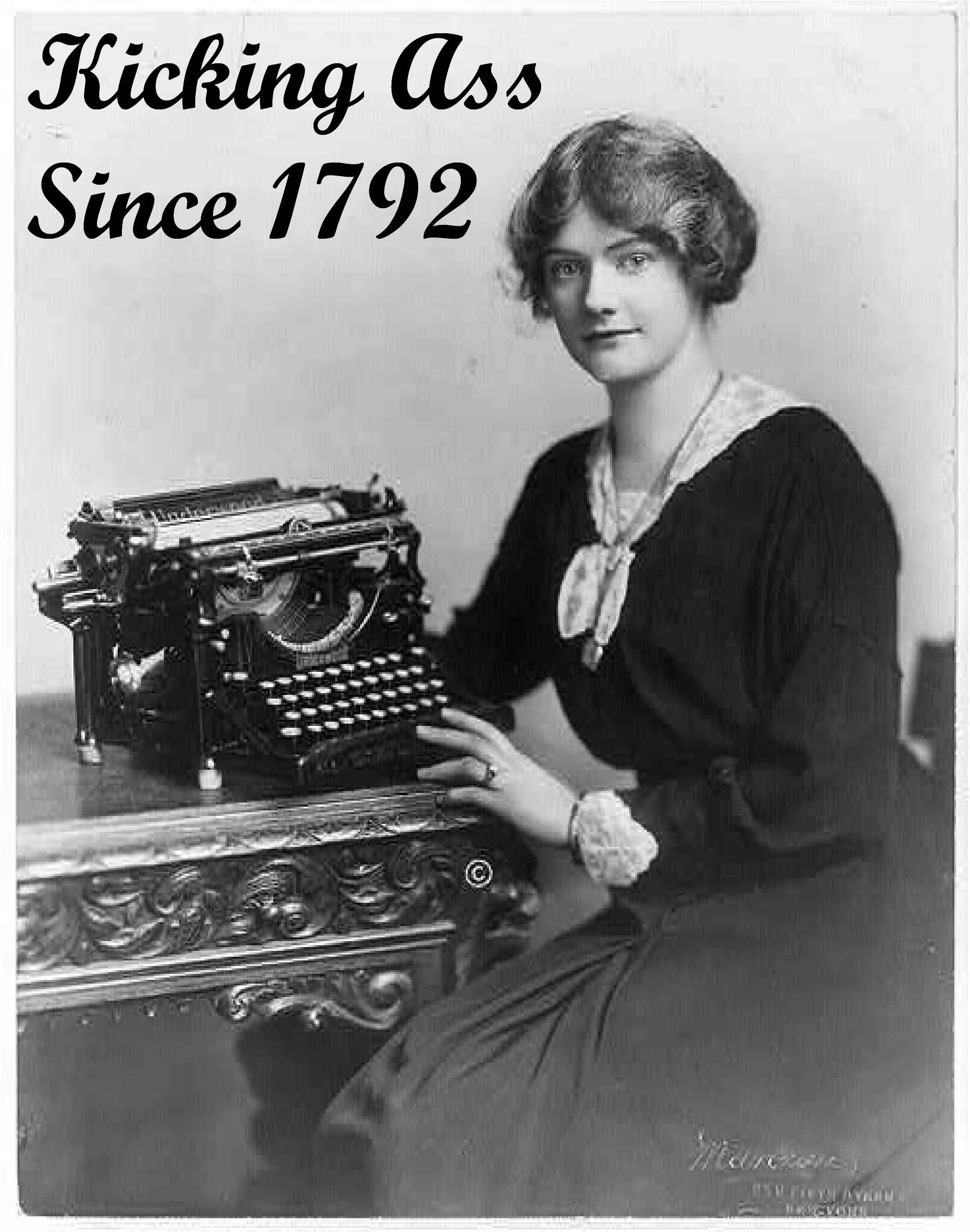
185
Downloads
5
Episodes
From Pine Mountain to the New Madrid Fault and every pocket of beautiful land in between, each month, we talk to one of the many Kick-Ass Kentucky Women Writers you should know and love.
From Pine Mountain to the New Madrid Fault and every pocket of beautiful land in between, each month, we talk to one of the many Kick-Ass Kentucky Women Writers you should know and love.
Episodes
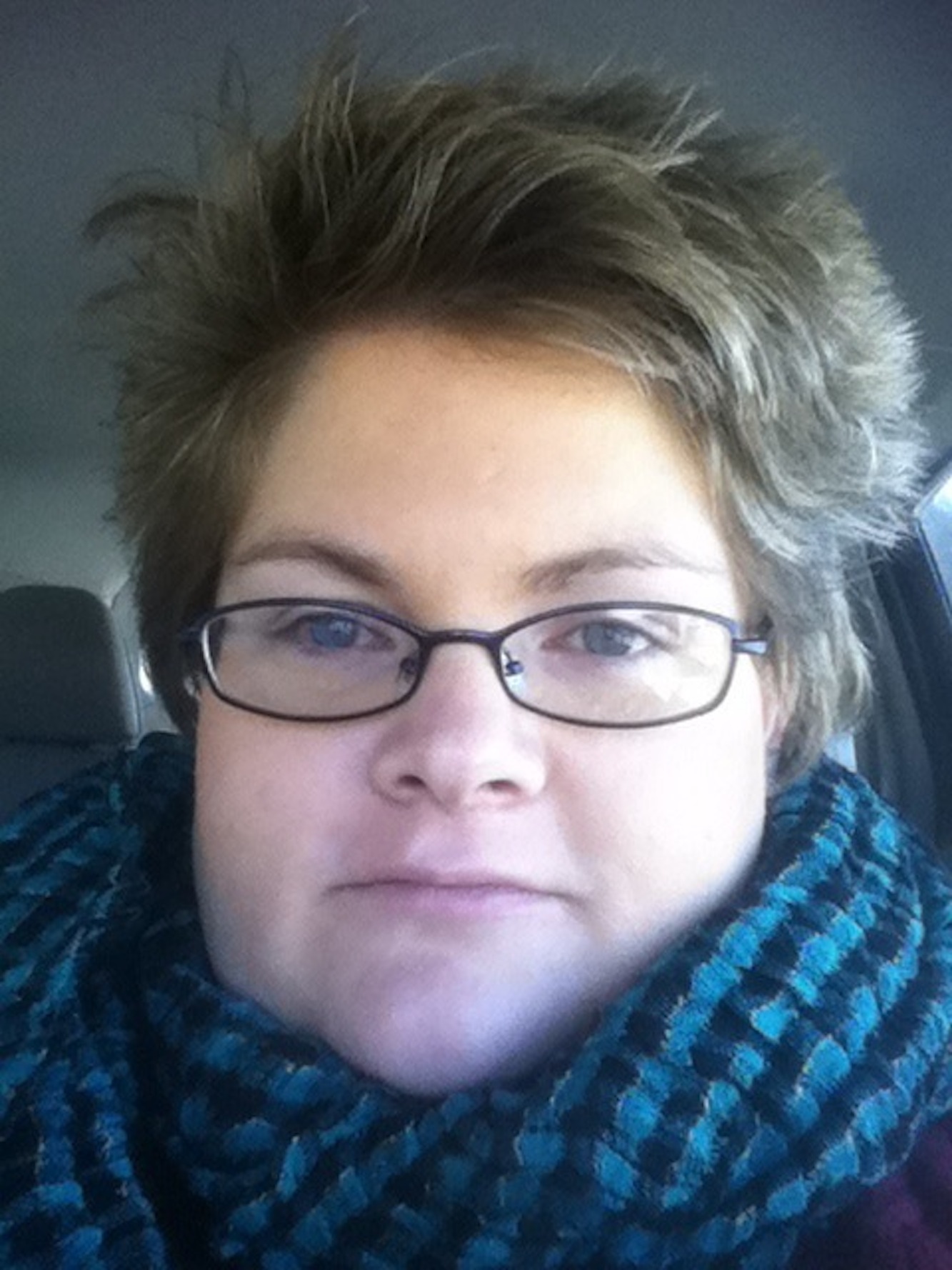
Friday Jun 30, 2017
Kick-Ass Kentucky Women Writers: Savannah Sipple
Friday Jun 30, 2017
Friday Jun 30, 2017
Savannah Sipple kicks ass…and Jesus is her homeboy.
A writer from Beattyville, Savannah’s poems and short stories have recently been published in Appalachian Heritage, The Pikeville Review, Southern Indiana Review, Still: The Journal. Savannah’s work also appears in the anthologies Appalachia Now: Short Stories of Contemporary Appalachia from Bottom Dog Press, and in If You Can Hear This: Poems in Protest of an American Inauguration, which is fresh off the presses from Sibling Rivalry Press. Savannah is also the co-owner of Brier Books, Lexington’s newest independent bookseller.
She’s recently finished a full-length poetry collection that fascinates me in its complexities around love and pain, two things inextricably intertwined. Whether the love in question is from a victim of domestic violence to their abuser or a young queer woman learning to love herself without losing faith, there is no easy answer for the mind or the heart in these poems.
It’s the complex relationship between Christianity’s expectations of women and the woman’s intense need for survival—but more than just that, the need for affection and acceptance—that can tear us down over time, cell by cell. But it can also light a fire within us that can engulf the world around us and burn it to the ground. Out of the ash, new life can emerge with immeasurable beauty.
At the heart of these poems is a type of come-to-Jesus talk. Literally. In this collection, Jesus rises up in ways we rarely hear about from the contemporary Christian church. He’s more human than most depictions, concerned about young kids using birth control, about victims of abuse finding freedom from their abusers, and about all of us finding connections with others, even if those connections are not what’s typically deemed acceptable in the churches. Yes, this Jesus is a brother, a confidante, and even a wingman.
As Savannah told me, “We’re taught at church that you wouldn’t be at the bar anyway, and you sure wouldn’t be there with Jesus.” And yet we are at the bar with Jesus in one of these poems, a Jesus who shows the purest love to a queer woman by encouraging her to love herself enough to be loved by another woman. This Jesus is love, for all of us.
I met Savannah years ago at the Appalachian Writers Workshop, which is held every year at the Hindman Settlement School. She makes me laugh and she makes me think, a combination that makes for good conversation…ones that can be about everything from balancing a life of art with academics to waging wars on squirrels that won’t quit eating up the garden.
So I felt lucky that my visit with Savannah happened to be on a lovely early summer evening in Lexington, prime porch-sitting weather. We talked about poetics and politics, the importance of women telling our stories, and searching for and finding a Jesus that loves you just as you are. Oh, and of course, Brier Books!
You can also read one of her political poems, “Our Country Needs,” over at Still: The Journal.
Until next time, keep on the lookout for pop-up events from Brier Books (Facebook, Instagram, & Twitter).
I don’t know about you, but I can’t wait until they’ve got a porch for me to sit on and visit a while. I’m gonna be that heathen in a hammock over in the corner.
Frankie Wolf is an Appalachian myth-maker and teller of small tales. She was the first woman editor of Pine Mountain Sand & Gravel, the literary magazine of the Southern Appalachian Writers Cooperative. Her essays and short stories have been published in Nantahala Review, Appalachian Journal, New Madrid, and Still: The Journal. She was named a finalist in the Carnegie Center’s Next Great Writers Contest, has been a recipient of multiple Kentucky Foundation for Women Artist Enrichment and Arts Meets Activism Grants, and earned an Emerging Artist Award for Nonfiction from the Kentucky Arts Council. She lives in Lexington, KY, where she is currently at work on a novel set in the Red River Gorge. You can sometimes find her teaching new writers aged 5 to 75 at the Carnegie Center. To see more of Frankie’s work, visit frankiewrites.com.
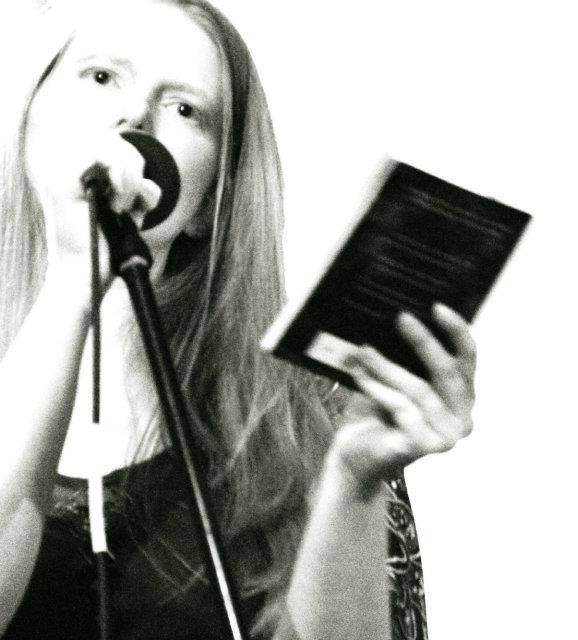
Wednesday May 31, 2017
K. Nicole Wilson
Wednesday May 31, 2017
Wednesday May 31, 2017
K. Nicole Wilson kicks ass…and can knock a baseball or a rhyme out of the park.
A graduate of the Spalding MFA in Writing program, her work has been published in Marginalia and Open Windows, and often appears on the Accents Publishing Blog. Her poems have also been anthologized in Small Batch: an anthology of bourbon poetry, Circe’s Lament: Anthology of Wild Women Poetry, and This Wretched Vessel and Her Limestone Bones, anthologies for Lexington Poetry Month. K. Nicole’s first poetry collection, This Temple, was published by Finishing Line Press in September of 2016.
A poet and painter who can pack a punch like Muhammed Ali when she wields words or a paint brush, K. Nicole’s known as “The Sports Poet” because her verse often celebrates her fierce passion for sports—especially baseball and Kentucky basketball. But Wilson writes about more than just a ball flying across the outfield or a full-court press. She says that all of her work is about love because love is what’s worth writing about. I’m a believer.
Though I was familiar with her work for a while, K. Nicole and I only recently met. We were both cast in Donna Ison’s Queerology 101, which we performed at the Rowan County Pride celebration. If you missed it in the news, Rowan County Clerk Kim Davis drew worldwide media attention in 2015 for refusing marriage licenses after the Supreme Court ruled in favor of marriage equality in the Obergefell v. Hodges case.
It was in Morehead, in the shadow of all the debates over the lines between “religious liberty” and civil rights, where I saw K. Nicole perform her poem “Flat Lines (For 49 Fireflies).” Her powerful response to the Pulse nightclub shooting centered on the image of the flickering light of a firefly, fleeting and delicate.
And now there’s so many fireflies we’ll never catch,
all moving in the night music, trapped in the rhythm,
the rhythm of staccato drops, so many pulses stopped.
Forty-nine multiplied by thousands
She’s paired paintings of fireflies in mason jars with the poem and plans to complete 49 in total, one for each of the people killed in the terrorist attack. This poem is magical, one of those that needs to be heard and shared. The full text is here.
It was just after Always Dreaming won Kentucky Derby 143 when I sat down with K. Nicole to chat about baseball, poetic forms, painting words, learning to value our worth as artists, and how a poem can save a life.
You can see what K. Nicole’s up to by following her on social media: @thesportspoet on Twitter or Facebook. This Temple is available now from Finishing Line Press, your favorite local bookstore, or the author herself.
Until next time, be sure to check out the poetry and paintings from “A Broad Perspective” on the blog over at Broads United. Also take some time to learn about the great work that the Rowan County Rights Coalition is doing…in a county where one elected official got famous for not doing her job. Spread the love.
Here are a few examples of K. Nicole’s artwork (and a picture of her as a young Reds fan).






Frankie Wolf is an Appalachian myth-maker and teller of small tales. She was the first woman editor of Pine Mountain Sand & Gravel, the literary magazine of the Southern Appalachian Writers Cooperative. Her essays and short stories have been published in Nantahala Review, Appalachian Journal, New Madrid, and Still: The Journal. She was named a finalist in the Carnegie Center’s Next Great Writers Contest, has been a recipient of multiple Kentucky Foundation for Women Artist Enrichment and Arts Meets Activism Grants, and earned an Emerging Artist Award for Nonfiction from the Kentucky Arts Council. She lives in Lexington, KY, where she is currently at work on a novel set in the Red River Gorge. You can sometimes find her teaching new writers aged 5 to 75 at the Carnegie Center. To see more of Frankie’s work, visit frankiewrites.com.
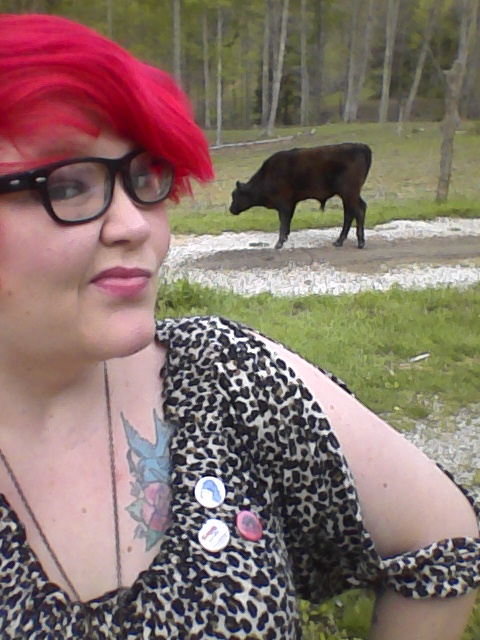
Friday Apr 28, 2017
Misty Marie Rae Skaggs
Friday Apr 28, 2017
Friday Apr 28, 2017
Misty Marie Rae Skaggs kicks ass…and tells it like it is.
Misty and I first met at a reading put on by the Southern Appalachian Writers Cooperative during the 2013 Appalachian Studies Association. She was reading from her chapbook Prescription Panes, which deals with the opioid epidemic in Kentucky. Direct and unflinching, Misty exposed the world beyond the statistical headlines about addiction and incarceration rates, a place where people we love fall away from us in a flash of hot lightning or by fading into oblivion over and over again until they disappear.
I know this dance with death. Because I come from Appalachian Ohio, just across the river from Huntington, WV, where a New York Times reporter rode along with the first responders on 27 overdoses in a single day—and it wasn’t an outlier. Because my childhood spent watching people drink themselves to death suddenly felt small compared to the desperate, strung-out people that make it unsafe for my niece and nephews to go to the park. Because I’d recently come from burying a man I’d known since he was in the first grade, a man who made THAT trip back from Florida in a bag instead of foggy behind the wheel. Because I’d looked into a small casket at the aftermath of it, that destroyer of worlds. Lines like these made it feel like home, the worst part of it:
He characterized it,
lean muscles going to grit,
wasting away,
right in front of me.
Slow suicide on the front porch.
But Misty’s work is not all about the pillbilly violence, the corpses with missing teeth, the children with dead eyes or just dead. She writes about a different kind of everyday life in Appalachia, too—the staying and going and returning, the changing rural landscape and economy, the beauty of the home she loves fiercely. And there is another side to Misty’s voice in her visual art, which she calls “Hillbilly Pop,” portraits of women paired with stories, bright ideas and paint that grab your attention and hold it.
It was a beautiful Kentucky spring day when I met up with Misty to chat. She met me in town, and then told me to sit shotgun and enjoy the ride. Redbuds just coming into bloom, small poke shoots just peeking their way out of cool soil, the medicinal plants that only elders remember starting to offer up their healing ways. We read the headstones at her family graveyard, including the ones with no names or stories to go with them. We drove by old homesteads and their ghosts. We sat in her “Mistybago” and listened to the birds while the breeze swept the sweet scent of dogwood over us. We talked about grannies, superstition, rural gentrification, and the importance of working-class voices being heard.
You can listen to my full interview with Misty here.
To see and support Misty’s work, follow her on Tumblr. Her blog’s called Lipstick Hick.
You can also buy a copy of Quarried: Thirty Years of Pine Mountain Sand and Gravel, read/contribute to Rabble Lit, or find out about the art show she just curated for It’s Good to Be Young in the Mountains.
Here are a few examples of Misty’s Hillbilly pop art.




Frankie Wolf is an Appalachian myth-maker and teller of small tales. She was the first woman editor of Pine Mountain Sand & Gravel, the literary magazine of the Southern Appalachian Writers Cooperative. Her essays and short stories have been published in Nantahala Review, Appalachian Journal, New Madrid, and Still: The Journal. She was named a finalist in the Carnegie Center’s Next Great Writers Contest, has been a recipient of multiple Kentucky Foundation for Women Artist Enrichment and Arts Meets Activism Grants, and earned an Emerging Artist Award for Nonfiction from the Kentucky Arts Council. She lives in Lexington, KY, where she is currently at work on a novel set in the Red River Gorge. You can sometimes find her teaching new writers aged 5 to 75 at the Carnegie Center. To see more of Frankie’s work, visit frankiewrites.com.

Tuesday Mar 28, 2017
Cynthia Ellingsen
Tuesday Mar 28, 2017
Tuesday Mar 28, 2017
Cynthia Ellingsen kicks ass…and makes people laugh.
A contemporary women’s fiction writer with a flare for funny situations, snappy dialogue, and characters with abundant picadillos, Cynthia’s work makes for a relaxing break from reality. Tuck one of her books into your bag before you head out to the beach, picnic blanket, or hammock, and prepare to giggle your way through the antics.
Her first book, The Whole Package, focuses on three estranged friends who find their way back together when their lives take a turn for the worse. Doris, the stay-at-home mom, fights anxiety when her husband buys a motorcycle and takes off cross-country to “find himself”; Cheryl, the take-charge corporate dealer, wants revenge after being fired by an unscrupulous boss; and Jackie, the free-spirited painter and wealthy widow, struggles to maintain her fabulous façade despite being bankrupt and homeless. After a night of drinking lands them at a men’s strip club, the three decide to open a restaurant—like Hooter’s but with speedos instead of tight white t-shirts.
Marriage Matters, Cynthia’s follow-up, begins with a wedding, where three generations of women all catch a piece of the bouquet, and soon find themselves ready to walk the aisle. Chloe, an over-extended grad student, is reluctant to tell her best friend, Ben, the news of her engagement; her mother, Kristine, agrees to a vow renewal on her twenty-fifth wedding anniversary despite the nagging feeling that the best moments with her husband are behind them; and June, a plucky octogenarian and professional meddler in other people’s affairs, finds love where she least expects it. As they work through the details of this epic family wedding, not everything goes as planned.
Cynthia’s upcoming novel, The Lighthouse Keeper, is due out on April 4. The main character, Dawn Conners, was raised on a boat by her treasure-hunter parents, and is determined to be far more sensible in her own life than they were. But when a news exposé accuses her great-grandfather of stealing silver as his ship sank in Lake Michigan nearly a century before, Dawn finds herself without a job, boyfriend, or bearings. Determined to uncover the truth and clear her family’s name, she buys the lighthouse in Starlight Cove that overlooks the old shipwreck. Faced with suspicious locals, a looming legal battle, and a major historical renovation project, Dawn, teams up with the town’s hottest bachelor to find out what really happened to the lost silver. While digging into the history of Starlight Cove, she discovers more than she ever expected—about her family, herself, and what it means to call a place home.
I sat down with Cynthia recently to chat about lighthouses, women’s book clubs, and the intersection of chocolate and fiction. She also read an excerpt from The Lighthouse Keeper.
After you listen, make sure to get your hands on a copy of The Lighthouse Keeper. It’ll be out on April 4, but you can pre-order your copy today on Amazon. Or you can come out and meet her at Joseph-Beth Booksellers in Lexington on Saturday, April 8, at noon.
If you can’t see her in person, catch her on TV. Cynthia will be appearing on LEX 18 at noon on Wednesday, April 5, and on ABC 36 Good Day Kentucky at 9 a.m. on Thursday, April 6.
To see what Cynthia’s up to next, follow her on Facebook or Twitter, or visit her website.
Frankie Wolf is an Appalachian myth-maker and teller of small tales. She was the first woman editor of Pine Mountain Sand & Gravel, the literary magazine of the Southern Appalachian Writers Cooperative. Her essays and short stories have been published in Nantahala Review, Appalachian Journal, New Madrid, and Still: The Journal. She was named a finalist in the Carnegie Center’s Next Great Writers Contest, has been a recipient of multiple Kentucky Foundation for Women Artist Enrichment and Arts Meets Activism Grants, and earned an Emerging Artist Award for Nonfiction from the Kentucky Arts Council. She lives in Lexington, KY, where she is currently at work on a novel set in the Red River Gorge. You can sometimes find her teaching new writers aged 5 to 75 at the Carnegie Center. To see more of Frankie’s work, visit frankiewrites.com.
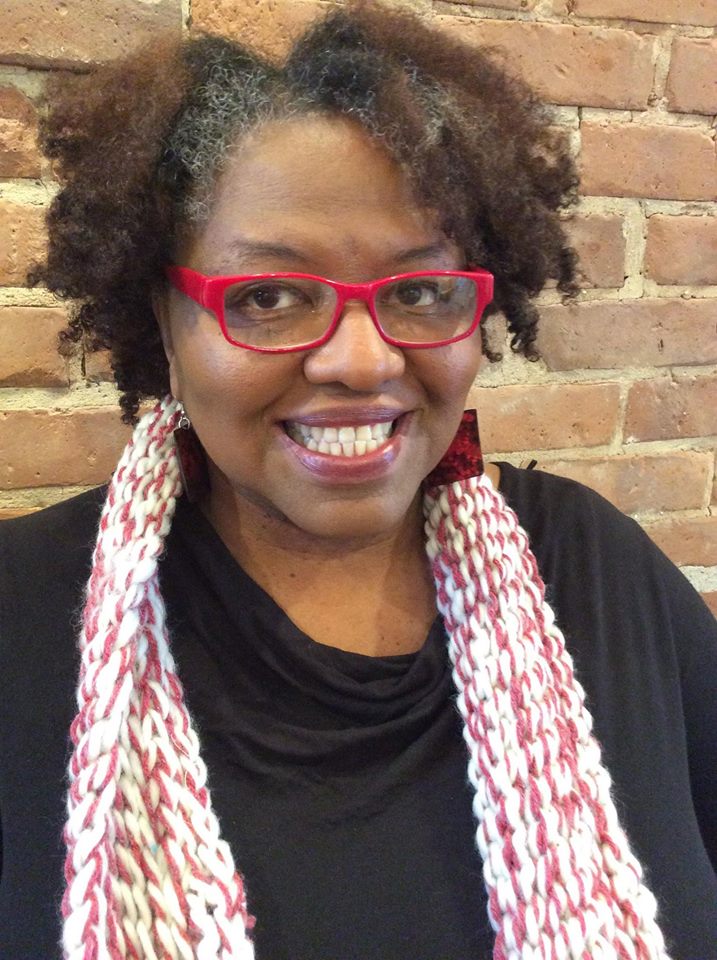
Saturday Mar 04, 2017
Crystal Wilkinson
Saturday Mar 04, 2017
Saturday Mar 04, 2017
Crystal Wilkinson kicks ass. …and wins awards for it.
Her first collection of stories, Blackberries, Blackberries, received the Chaffin Award for Appalachian Writing; her second, Water Street, which was a finalist for both The Orange Prize for Fiction and The Hurston-Wright Legacy Award.
Crystal’s latest book, The Birds of Opulence, just received the Ernest J. Gaines Award for Literary Excellence, the Weatherford Award for Fiction, and the Judy Gaines Young Book Award.
She is a founding member of the Affrilachian Poets, a professor in Spalding University’s Low Residency MFA program, and the Appalachian Writer-in-Residence at Berea College. Crystal is also the co-owner of The Wild Fig Books and Coffee, along with her partner Ron Davis.
I read Blackberries just after my mother died in 2001, when I was trudging through my one and only Indianapolis winter. I contemplating a move to Kentucky—where I hadn’t lived since I was in the first grade—and I wanted to see what kind of writing community would be awaiting me there. Having grown up in Appalachian Ohio, I was familiar with some of Kentucky’s more famous (or infamous) writers, like James Still, Bobbie Ann Mason, Hunter S. Thompson, and Gurney Norman, but not many beyond those. So it was through Crystal’s first book that I got my first look into the richness of contemporary Kentucky literature.
When I finished Blackberries, I immediately turned back to the front of the book and read it all again. Though I was not entirely a Kentuckian (but the eldest child of one), the characters and themes resonated with my life experience. I saw a younger version of myself, immersed in the magic of a country night, in characters like Javeda:
Many a night Javeda would like on her back and be lulled by katydids and whippoorwills speaking to one another in the pitch of the Casey Creek night. A cool breeze would rustle her nightgown and she would lie still and awake, paying close attention to the quiet of the darkness. The leaves rustling in the air like a woman’s skirt tail, the dampness of the night, the chirping of a far-off bird.
And I saw my own grief and struggle with deep depression in Bessie Purvis, who sat around waiting for the reaper most of her life, as those whom she loved most died all around her. But what I also saw in Crystal’s writing was the masterful crafting of characters, of families, of language, and of place, and it inspired me to write again after a year of death, displacement, and despair.
I first met Crystal in 2003, when she was teaching a writing workshop at Pine Mountain State Resort Park. I was eager to learn from her—and to get my hands on Water Street, which had been released not long before. Water Street brought me back to some of my favorite characters in Blackberries and introduced some more. By then, I was teaching writing and her work on character development and lyrical prose became a model that I studied and shared with my students.
Over the next decade, Crystal became an important mentor for me as I transitioned from a lyrical essayist to literary fiction writer. She’s taught me many lessons on writing craft and revision over the years in the classroom, and many others on what it means to be dedicated to writing while juggling all of the other things we have to do as mothers, providers, family, friends, and community members. When she says, “I am a writer who teaches, not a teacher who writes,” she reminds me to keep Frankie the Writer at the forefront of my identity and not to let it get lost in the fray. That is maybe the most important lesson I have ever learned as a writer, though it’s not always the easiest to apply.
During the past few years, I’ve heard Crystal read about the people of Opulence a handful of times. Each time, my breath was taken away, so I was one of the many people wedged in, elbow to elbow, to hear her read from The Birds of Opulence at The Wild Fig last fall for the book release. As Crystal read, we all leaned in—and when she stopped, we asked for more. I wasn’t alone that night in my wish that she wouldn’t stop reading until she’d read us the whole book.
When I went home to read The Birds of Opulence, I was once again floored by Crystal’s lyricism and imagery. It’s easy to get pulled into this family legacy, to eavesdrop on their lives, but some of their experiences are haunting and hard to read. The Goode-Brown family has a legacy of mental illness and violence. Whether the family member is mentally ill or their care-giver, and whether they are the perpetrator, victim, or bystander of an act of violence, they all are marked by it. A psychic stain hangs in the air, ghost-like, just out of reach for some and too close to bear for others.
The cover (drawn by Crystal’s partner, artist/poet Ron Davis) adds some insight into reading this family history. The sankofa bird stands with its feet facing forward and looking back over its shoulder, about to eat a seed. Traditionally, the sankofa is a reminder that, without understanding our past, we are unable to learn from it and move forward. We see some members of the Goode-Brown family looking back, but unable to move forward; others repeating history; others losing touch with the past as they escape into a new life; and paths in between.
Opulence is filled with characters who breathe, stand up, and speak directly to you. Once you meet them, you won’t forget them or the stories they tell.
I sat down with Crystal recently at The Wild Fig to chat about her books, storytelling, family patterns, and making sure we take time out of our lives to write. She also reads a few pieces from The Birds of Opulence.
So take a listen to the interview and afterward, stop by The Wild Fig to pick up one (or all) of Crystal’s books. You can find them at 726 North Limestone in Lexington. If you’re not in Lexington, they’ll ship them to you; just call (859) 252-3052.
Go in the morning and enjoy a breakfast paco (that’s pancake + taco!) and a locally-roasted coffee or one of their specialty drinks named after local writers. Or swing by later in the day to catch a reading, workshop, or other community event.
To see what’s a-cookin’ or a-happenin’, follow The Wild Fig on Facebook, Instagram, Twitter, and their website.
Want more?
- Read about The Wild Fig in The New York Times, then keep it local and another story in The Herald-Leader.
- Read “Dig if You Will the Picture,” Crystal’s lyrical essay in Oxford American.
- Read Silas House’s interview with Crystal in Appalachian Heritage.
- Watch Renee Shaw’s interview with Crystal on KET.
- Listen to Julie Wrinn’s interview with Crystal on UK Perspectives.
Frankie Wolf is an Appalachian myth-maker and teller of small tales. She was the first woman editor of Pine Mountain Sand & Gravel, the literary magazine of the Southern Appalachian Writers Cooperative. Her essays and short stories have been published in Nantahala Review, Appalachian Journal, New Madrid, and Still: The Journal. She was named a finalist in the Carnegie Center’s Next Great Writers Contest, has been a recipient of multiple Kentucky Foundation for Women Artist Enrichment and Arts Meets Activism Grants, and earned an Emerging Artist Award for Nonfiction from the Kentucky Arts Council. She lives in Lexington, KY, where she is currently at work on a novel set in the Red River Gorge. You can sometimes find her teaching new writers aged 5 to 75 at the Carnegie Center. To see more of Frankie’s work, visit frankiewrites.com.
